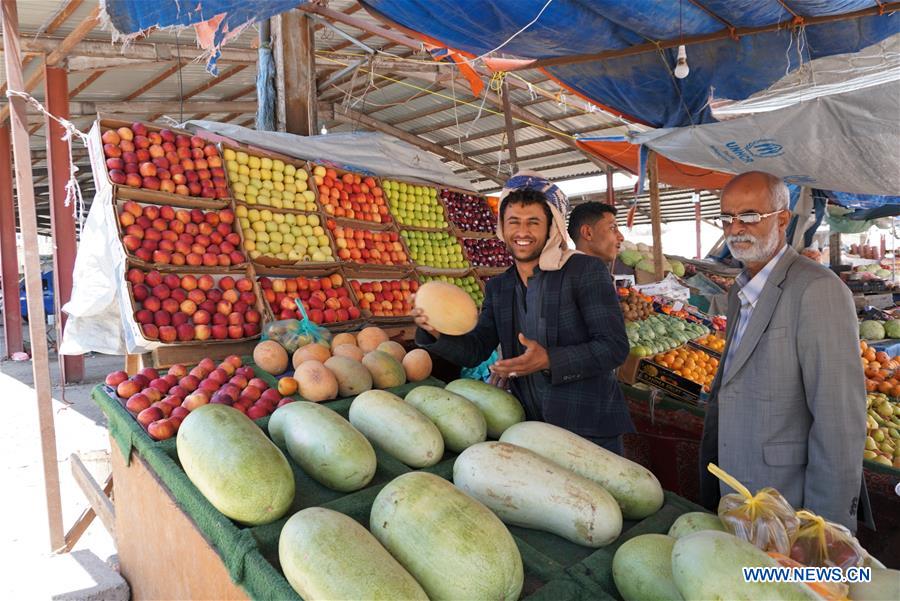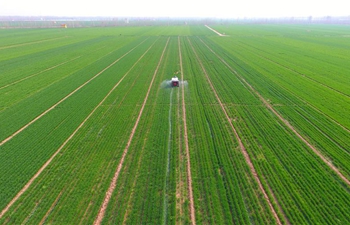 ?
?A Yemeni fruit vender sells fruits to a customer in al-Hassaba central market in downtown Sanaa, Yemen, on March 30, 2019. The civil war in Yemen has pushed the country's economy to the brink of collapse with sharp plunge in the currency and soaring inflation left millions jobless. Officials in the Ministry of Industry and Trade of Yemen said the imports have dropped to less than a half in 2018, down 60 percent from pre-war year. (Xinhua/Mohamed al-Azaki)
by Mohamed al-Azaki
SANAA, March 30 (Xinhua) -- The civil war in Yemen has entered into its fifth year with no sign of letting up. Recent peace efforts to implement a cease-fire deal in the country's main lifeline port city of Hodeidah have stalled.
The war has pushed the country's economy to the brink of collapse with sharp plunge in the currency and soaring inflation left millions jobless. The country's infrastructure, health system, highways and airports have severely been damaged.
Officials in the Ministry of Industry and Trade said the imports have dropped to less than a half in 2018, down 60 percent from pre-war year.
"Yemen's food and commercial imports have dropped to 6.94 billion U.S. dollars in 2018 compared to 14.76 billion U.S. dollars in 2014," Bassam Al-Gharbani, the deputy of foreign trade at the ministry told Xinhua in an interview.
Escalating military tensions in Hodeidah forced most of the imports to divert routes to the country's southern port city of Aden, which is under government control backed by the Saudi-led coalition forces.
Maeen al-Arasi, a resident in Sanaa, told Xinhua that many of his neighbors sleep hungry and manage only to buy one meal a day.
"Before the war erupted, our situations were good, but after four years now the humanitarian and economic situations have become unbearable, the food prices have doubled three times. My neighbors can only manage to eat once a day," he said.
According to the World Food Program, 15.9 million Yemenis wake up hungry every day. The international aid agency says this number would go up to 20 million.
Nearly three million children and pregnant or nursing women are acutely malnourished, including 400,000 children under five suffering from severe acute malnutrition.
Mohammed al-Hobayshi, owner of vegetable shop in downtown Sanaa, complains of the recession of his goods because people he says cannot afford to buy.
"Many people cannot afford to buy a kilogram of tomatoes. The prices are very expensive due to the high transport costs of goods between cities," seller al-Hobayshi said.
Central markets in downtown Sanaa appear empty of customers in the middle of the day, which means that famine is a possibility for millions of people, mostly women and children who are already hungry in this war-torn country.
Grinding into its fifth year, the war has killed tens of thousands of people mostly civilians, displaced over three million and pushed more than 20 million to the brink of mass starvation.















